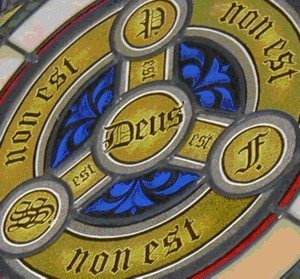Doctrine and Doxology

June 4, 2009

I remember a meeting several years ago with the General Secretary of the World Council of Churches. He told me that the old WCC slogan, "Doctrine Divides, Service Unites," had proven unworkable. "Actually," he said, "it's the other way around. Even when we reach agreement on the meaning of the Apostles' Creed, unanimity falls apart when we talk about political, social, economic, and cultural issues." We know where the WCC has ended up, although it began as a transdenominational, evangelical missionary movement attempting to wed evangelism to social concern. Along the way, it began to think that the gospel was about deeds, not creeds. Despite its good intentions, the assumption that continually makes Evangelicalism a seedbed for liberalism is that doctrine is secondary to life. Today, Evangelicalism is far less divided by doctrine, which is generally treated with indifference, than by the particular ideology that cultural transformation should take. "Deeds, not creeds" has already been tried-many times, and has simply led to ungodly strife and divisions in Christ's body even over matters that are not clearly addressed in Scripture. While church history (and contemporary experience) exhibits evidence of wrangles over doctrinal precision that do not lead to the peace and purity of the church in its mission, the church has demonstrated that it can find plenty of other things to fight about when it looks away from Christ.
It might seem controversial to identify doctrine with "gospel" and deeds with "law," especially since these days we often hear calls to "live the gospel." However, the gospel is not an imperative, but an indicative; not a program to follow, but an announcement to welcome for our own salvation and to herald for the salvation of the world. Does that mean that we do not have imperatives or that we do not follow Christ? As Paul would say, "May it never be!" It simply means that we have to distinguish indicatives and imperatives. The law gives us something to do, and the gospel gives us something to believe. Christians are no less obligated to obey God's commands in the New Testament than they were in the Old Testament, but they are commands, not promises. The imperatives drive us to despair of self-righteousness, the indicatives hold up Christ as our only Savior, and then the imperatives become the "reasonable service" of believers "in view of God's mercies." There is a lot of wisdom to the order of the Heidelberg Catechism: Guilt, Grace, and Gratitude. The commands tell us what we are to do; the gospel tells us what God has done. "Deeds, not creeds" leaves the sinner with the tattered garment of fig leaves rather than robed in the righteousness of Christ.
From Michael Horton's article "Creeds and Deeds" in Modern Reformation
Read the entire article HERE.




